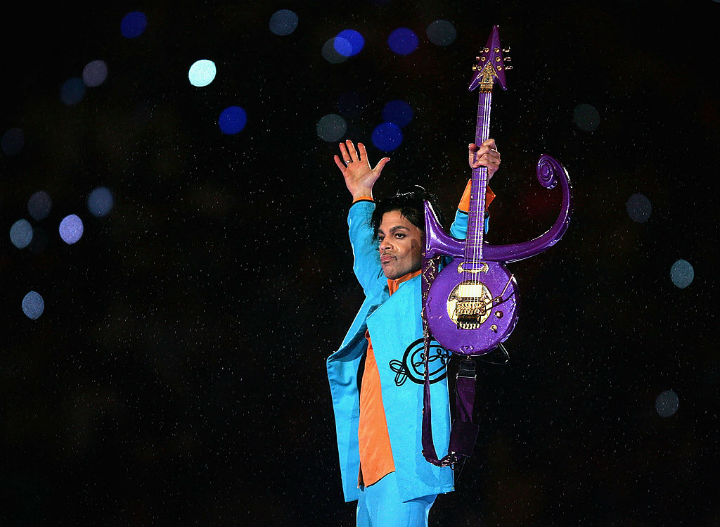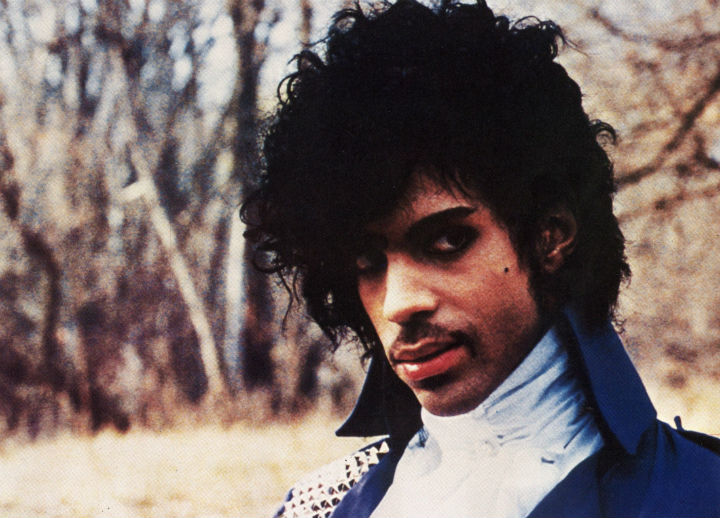With the death of Prince, the music world has not only lost one of its most prolific hit-makers but also an artist who challenged and changed the industry.

In a career spanning five decades, the “When Doves Cry”, “Little Red Corvette” and “Purple Rain” singer didn’t hold back when it came to standing up for his work, and his music had a long-lasting impact on the business.
TIMELINE: Looking back at Prince’s career as a musical icon
Prince changed his name to an unpronounceable symbol
Fans didn’t know what to say — literally — when Prince suddenly became formerly known as Prince.
Rolling Stone listed his 1993 decision to switch his name to an unpronounceable symbol as one of “the boldest career moves in rock history.”
The symbol was a hybrid of the male and female symbols and eventually became referred to as the “Love Symbol.” But in the media he was often referred to as the “Artist” or “Artist Formerly Known as Prince”.
Prince was at odds with Warner Bros. over how frequently he was releasing albums. He felt the company was holding his music back. As he sparred with Warner Bros. over the release of The Gold Experience, he even appeared on stage with the word “slave” scrawled on his face.
READ MORE: Prince had special connection to Toronto, site of one of his final shows
His contract with Warner Bros. came to an end in 1996 and he released the three-CD album Emancipation. Prince finally became Prince again in 2000.

In 2014, Prince and Warner made up and he signed a new deal with the music company for a 30th anniversary release of the 1984 album Purple Rain and new music.
We have Prince to thank for parental warnings on music
Prince embraced sexuality in his work but the lyrics in his song “Darling Nikki”, from the 1984 Purple Rain album, helped bring about the famous black-and-white “Parental Advisory” sticker slapped on any album with explicit lyrics.
The Parents Music Resource Center (PMRC) was co-founded by Mary “Tipper” Gore — who would become “Second Lady of the United States” when husband Al Gore became vice president in 1992 — after her 11-year-old daughter brought home the album.
The lyrics that weren’t music to Gore’s ears that inspired the PMRC’s formation were: “I knew a girl named Nikki/I guess you could say she was a sex fiend/I met her in a hotel lobby masturbating with a magazine.”
READ MORE: ‘RIP Prince’: Celebrities, fans mourn singer’s death on social media
The song topped the PMRC’s “Filthy Fifteen” list and helped inspire the creation of the warning label, which began appearing on the front of albums in 1996.
He took on his Facebook fans for sharing his music for free
For Prince, concertgoers who recorded his concerts and shared the footage on social media were seemingly no better than bootleggers.
In early 2014, he filed a lawsuit against 22 fans who shared unauthorized concert recordings on various websites — including dedicated Prince fan forums — and on Facebook.
According to a court filing on behalf of Prince Rogers Nelson, the defendants were accused of “engaging in massive infringement and bootlegging of Prince’s material.”
The musician sought $1 million in damages from each of the accused, for a total of $22 million. He ultimately dropped the suit.

Seven years before that, he faced off with another internet user Stephanie Lenz, who uploaded a video of her toddler bopping out to his song “Let’s Go Crazy”.
According to ABC News, only 28 people had viewed Lenz’s video by the time YouTube sent her a notification that the video had been taken down due to a Universal Music Group request.
“Prince believes it is wrong for YouTube, or any user-generated site, to appropriate his music without his consent,” ABC reported the company saying in a 2007 statement. The news outlet also cited an unnamed source saying Prince “scours the internet” for copyright violations of his work.
But in the end — eight years later in September 2015 — it was Lenz who wound up victorious after she sued Universal. She challenged Universal’s claim her video violated the Digital Millennium Copyright Act and “constituted an infringing use of a portion of a Prince composition.”
The three-judge panel unanimously deciding that “parties must individually consider whether a work is a fair use before representing that the work is infringing in a takedown notice.”
















Comments